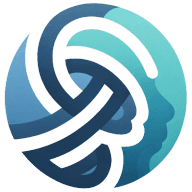How Do You Stay Informed About the Latest in Psychotherapy?
In an ever-evolving field like psychotherapy, staying up-to-date with the latest research is crucial. Discover how a Board-Certified Psychiatrist keeps abreast of current studies and the surprising method a Psychiatric Nurse Practitioner uses to stay informed. From initial insights on maintaining current with psychotherapy research to final thoughts on utilizing various methods to stay informed, this article unpacks three unique perspectives from mental health professionals. These experts share the impact of updated research on their practice.
- Stay Current with Psychotherapy Research
- Integrate Mindfulness-Based Interventions
- Utilize Various Methods to Stay Informed
Stay Current with Psychotherapy Research
I make it a priority to stay current with psychotherapy research by reading journals, attending seminars, and having regular discussions with colleagues in the field. This isn't just about keeping up-it's about finding ways to improve the care I provide. One thing I've taken from recent research is the power of combining TMS therapy with talk therapy, like CBT, especially for patients struggling with treatment-resistant depression. It's been amazing to see how these approaches work together to help people in ways we couldn't before. Staying connected to new ideas helps me create better, more tailored care for my patients every day.

Integrate Mindfulness-Based Interventions
As a mental health professional, staying informed about the latest research in psychotherapy is essential for providing the best possible care to clients. One of the primary ways I stay updated is by regularly engaging with professional journals and attending workshops or webinars on evidence-based practices. These resources not only offer insights into emerging therapeutic techniques but also allow me to refine my skills and approach to client care.
Influence on Practice
One impactful way this has influenced my work is through integrating research-backed mindfulness-based interventions into therapy sessions. Studies have consistently highlighted the benefits of mindfulness for reducing stress, enhancing emotional regulation, and improving interpersonal relationships. After learning about these findings in a workshop, I incorporated mindfulness exercises-such as guided breathing or grounding techniques-into sessions with clients experiencing anxiety or difficulty managing emotions.
The results have been promising. Clients often report feeling more present and in control, and these tools empower them to navigate challenges between sessions. This integration has also opened up deeper conversations about self-awareness and coping strategies, enriching the therapeutic process.
Additionally, staying informed helps me maintain a sense of professional confidence and credibility. Clients benefit from knowing their therapist is committed to growth and is actively applying the most effective and current methods to their care.
Ultimately, continuous learning not only enhances my practice but also aligns with my core value of fostering growth-for both myself and the individuals and families I support.

Utilize Various Methods to Stay Informed
As a mental health expert I always try to stay informed about the latest research in psychotherapy through various methods. I am discussing some of them below.
Professional Journals. These publications such as the American Journal of Psychiatry and the Journal of Consulting and Clinical Psychology regularly publish peer reviewed research articles on the latest findings in psychotherapy. Yes, I am a regular reader of multiple publications like the Journal of Clinical Psychology, Psychotherapy, and Cognitive Therapy and Research. These helped me gather more knowledge about my field.
Conferences and Workshops. Attending conferences and workshops allows mental health experts like me to enhance our knowledge and learn more about the latest research from leading experts in the field as well as network with other professionals. This helped me adopt new therapeutic approaches, refine existing techniques or discontinue outdated methods based on the evidence presented in studies.
Clinical Supervision and Peer Consultation. Mental health professionals participate in supervision or peer consultation groups to discuss cases and share new research. Real time feedback from colleagues helps integrate research findings into practical and context specific applications.
Professional Organizations. Organizations like the American Psychological Association (APA), the National Association of Social Workers (NASW) and the International Society for Traumatic Stress Studies (ISTSS) provide members with access to newsletters, webinars and conferences.
Online Resources. Websites and online databases such as PubMed, PsycINFO and Google Scholar provide access to the latest studies and enables me to find relevant research quickly.
How does so much knowledge help professionals like me?
New evidence based practices have helped me to ensure that I am using the most effective treatments available tailored to the specific needs of each patient.. New treatment modalities such as cognitive behavioral therapy (CBT) and mindfulness based stress reduction (MBSR) are effective for a wide range of mental health conditions. It has also helped me to identify factors that contribute to positive treatment outcomes such as the therapeutic alliance and my skill levels.
It also helps me keep up with ethical treatment standards and reduce the likelihood of harm due to outdated practices.


